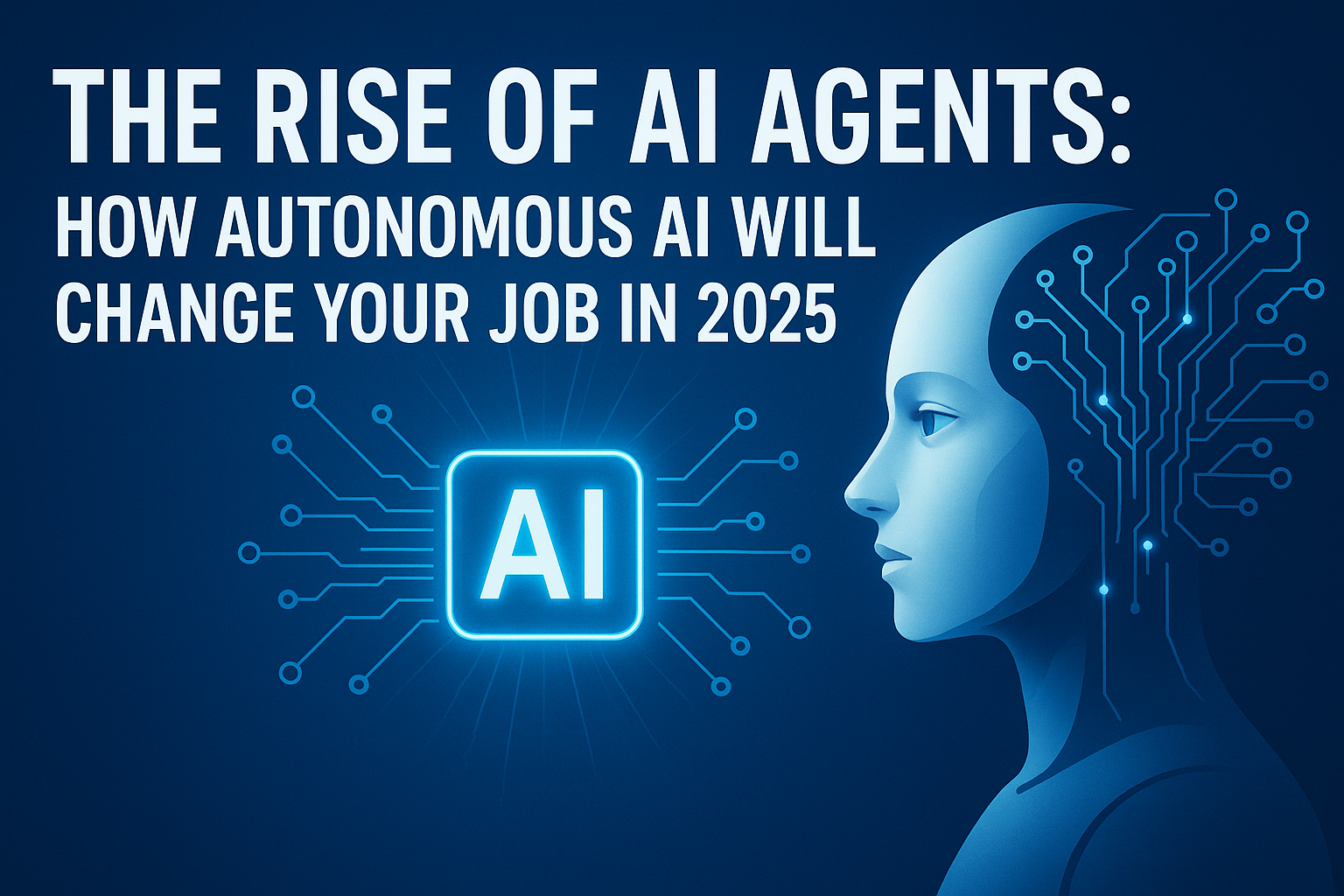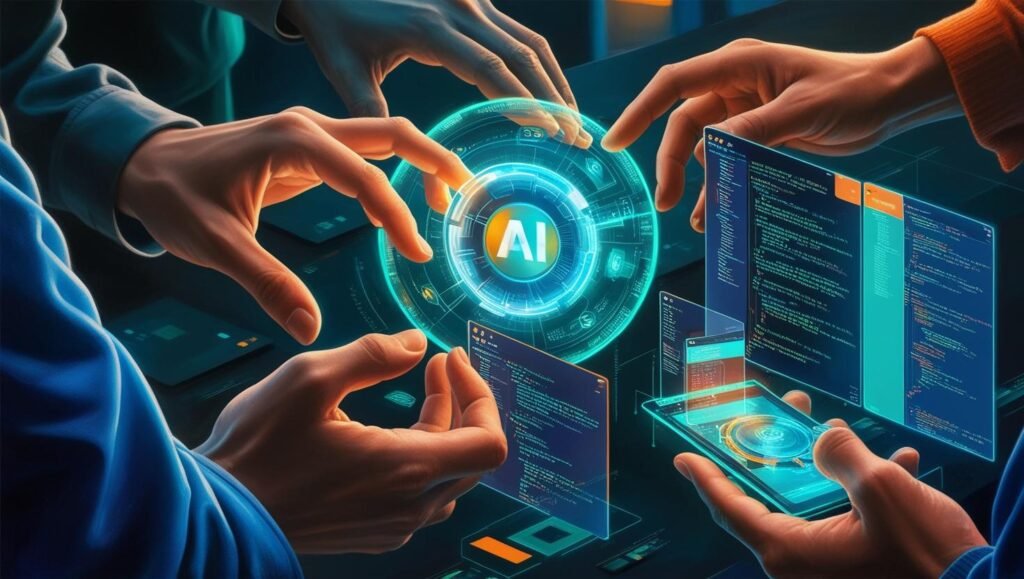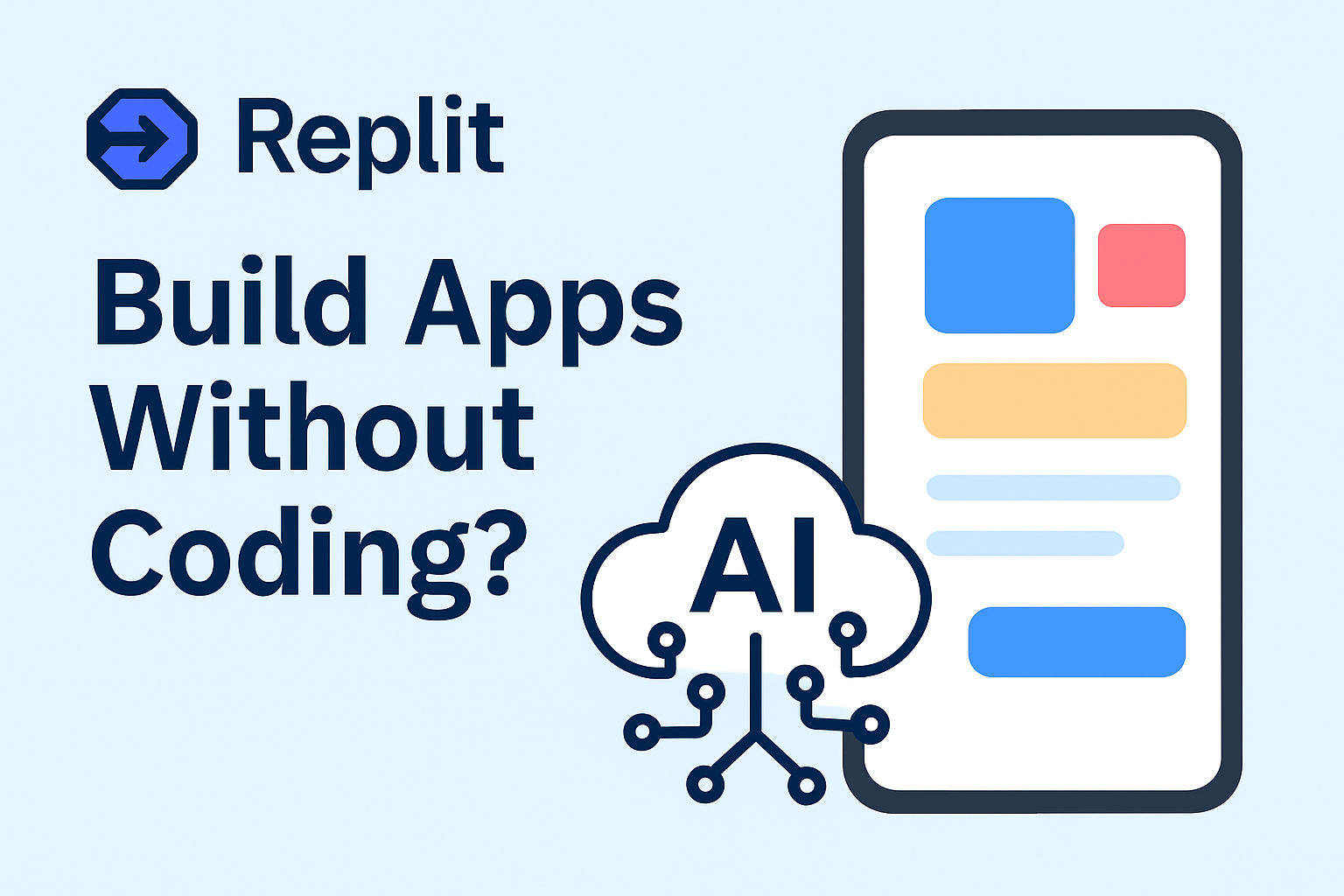As we move into 2025, AI agents are poised to revolutionize how complex objectives are achieved by autonomously planning, executing, and adapting tasks end-to-end.

- What AI Agents Are:
AI agents are autonomous software entities that can be given a high-level goal—rather than a single prompt—and then independently break that goal into subtasks, choose and use the right tools (APIs, web browsing, databases), monitor progress, handle exceptions, and report back when finished or in need of human input. - How They Differ from Chatbots or Automation Scripts:
- Chatbots (e.g., ChatGPT): Reactively respond to user inputs one turn at a time without long-term planning or tool integration.
- Automation Tools (e.g., Zapier): Follow strictly predefined rules and workflows but cannot reason beyond those rules or recover from unexpected failures.
- AI Agents: Can plan multi-step sequences (“research X, book Y, add to calendar”), remember past actions, adapt strategies when things go wrong (e.g., a sold-out flight), and choose from a range of tools without explicit human scripting.
- Core Capabilities That Enable Autonomy:
- Planning & Decomposition: Automatically break a broad objective into prioritized subtasks.
- Memory & Context Tracking: Maintain a running context of what’s been done, what’s pending, and why certain decisions were made.
- Tool Use & Integration: Invoke web searches, interact with booking APIs, send emails, update calendars, or even execute code in order to fulfill each subtask.
- Adaptive Reasoning: Detect failures or roadblocks (e.g., budget limits, unavailable resources) and pivot strategies—such as suggesting alternative flights or accommodations.
- Current Examples & Research Directions:
- Auto-GPT & BabyAGI: Open-source prototypes that chain together LLM calls, tool invocations, and memory modules to tackle multi-step tasks like market research or content generation.
- Zapier Agents (Prototype Stage): Integrating AI reasoning with Zapier’s existing workflow automation to allow more flexible, goal-oriented sequences (e.g., “find five social media posts about X, summarize them, and email me the report”).
- Future Assistants from Google/Microsoft: Rumored to involve deeply integrated AI agents capable of managing end-to-end workflows within G Suite or Microsoft 365—booking meetings, preparing slide decks, or coordinating cross-platform tasks entirely on behalf of users.
The potential application useage of AI agents increased across so many sectors
Customer Service: AI agents can autonomously handle complex inquiries, accessing multiple systems or databases to resolve issues that go beyond simple FAQs.
Research and Analysis: AI agents can conduct comprehensive literature reviews, gather and synthesize data from diverse sources, and draft initial reports to accelerate the research lifecycle.
Software Development: AI agents can autonomously debug code, manage testing environments, and write and deploy entire modules based on high-level specifications.
Project Management: AI agents can monitor progress across different platforms, flag potential delays, allocate resources, and update stakeholders automatically.
Personal Productivity: AI agents can manage schedules, filter emails, organize files, and handle routine administrative tasks with minimal human oversight, acting as true digital assistants.
The implications for the job market are significant and multifaceted. On one hand, AI agents promise substantial productivity gains by automating complex, time-consuming tasks currently performed by humans. This could free up professionals to focus on more strategic, creative, and interpersonal aspects of their roles – tasks that require uniquely human skills like critical thinking, emotional intelligence, complex negotiation, and innovation. However, the rise of autonomous AI also raises concerns about job displacement, particularly for roles heavily reliant on routine information processing, data entry, or standardized procedures. The key challenge will be adapting job roles and skill sets to collaborate effectively with these agents. Instead of performing the tasks themselves, many professionals may shift towards defining goals for AI agents, overseeing their execution, validating their outputs, and handling the exceptions or complex scenarios the agents cannot manage.
Governance, Ethics, and Security in AI Agent Integration
- Managing a hybrid workforce of humans and autonomous AI agents
- Defining ethical guidelines for agent decision-making, especially given potential real-world consequences
- Ensuring data security and privacy for all information accessed and processed by AI agents
- Developing robust governance frameworks to address oversight, accountability, and compliance
- Maintaining transparency in agent operations and decision-making to build trust and ensure accountability
- that employees and stakeholders can trust their decisions?
Conclusion
By 2025, AI agents will be more than reactive chatbots or rule-based automations they will act as autonomous collaborators capable of Creating end-to-end workflows. This technological leap offers the promise of significant efficiency and innovation across all industries, but it also requires a fundamental knowledge of job roles, skill sets, and organizational structures. Success in this new era hinges on embracing human-AI collaboration: professionals who learn to guide, supervise, and audit AI agents will drive the greatest value. Simultaneously, companies must build robust governance frameworks to address ethical, security, and accountability challenges. Ultimately, organizations that thoughtfully integrate AI agents—balancing automation gains with human judgment—will be best positioned to thrive in a rapidly changing la


